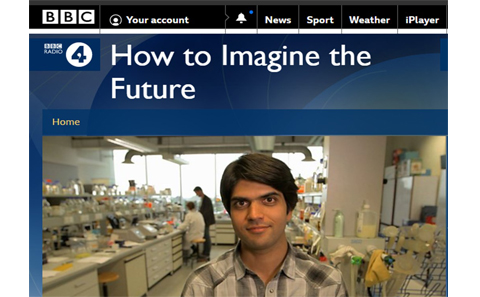How to imagine the future – and make it happen. Susan Gourvenec featured in a BBC Radio 4 programme about ARIA, the UK's new body for cutting edge scientific research

The March 2020 UK Budget confirmed the government’s commitment to an £800 million investment in the creation of a new research funding body. ARIA, the Advanced Research and Invention Agency, is described as a new approach to funding high-risk, high-payoff emerging fields of research and technology and based on the principles of the US Advanced Research Projects Agency (ARPA) now renamed DARPA (Defense Advanced Research Projects Agency).
The UK government indicates that “ARIA will exclusively focus on projects with potential to produce transformative technological change, or a paradigm-shift in an area of science”, and that “while it is anticipated that most programmes may fail in achieving their ambitious aims, those which succeed will have profound and positive impact on society”.
The principles of ARIA, as set out on the UK government website, are (i) High-risk research focus, (ii) Strategic, scientific, and cultural autonomy, (iii) Investing in the judgement of talented people and (iv) Financial flexibility and operational freedom.
Implications of these principles, along with insights into the operation and successes of ARPA/DARPA, were the subject of a ‘How to Imagine the Future’ Programme, hosted by Alok Jha, Science correspondent of The Economist that aired on BBC Radio 4 in late August.
Alongside RAEng IROE Chair, Susan Gourvenec, guests included Amanda Solloway, Minister for Science, Research and Innovation, Department for Business, Energy and Industrial Strategy, Vint Cerf - who helped to create the internet while working for DARPA in the 1970's, Sharon Weinberger – author and journalist who has recently written a history of DARPA, Daniele Faccio – Professor of Quantum Technologies, Jack Stilgoe – Associate Professor in Science and Technology Studies, Andrew Orlowski – Business and technology columnist from The Telegraph, David Bott – who was involved in the UK Gvt Technology Strategy Board in the 2000s, which also drew on the DARPA model, Barbara Deal – who works for SPRIN-D, Germany’s version of DARPA.
While the government indicate that ARIA will have autonomy and ‘be in the hands of scientists’, sceptics are yet to be convinced that ARIA will share DARPA's cherished independence from government and some critics say that without DARPA's defence remit, ARIA will lack focus. Discussion and views were wide ranging – and the podcast is available to listen to in full until 29 September 2021.
Susan welcomes increased investment in research and innovation, and particularly support of high risk R&I. She discusses how current UK funding bodies and schemes typically require applicants to demonstrate quite specifically how a current challenge will be overcome in order to apply for funding to address that challenge, such that the research is inherently limited in terms of risk or freedom for innovation. As a result, current avenues for research funding are often not well-suited to exploratory research relevant to emerging technologies.
Susan however raises concern over the concentration of power in individual programme managers indicated in the ARIA brief, and in particular the remit to cut funding quickly. While acknowledging that a bit of agility and responsiveness is positive, the freedom for those individuals to withdraw funding quickly is a concern. Susan notes that academia is already a precarious career for many researchers, and especially early career researchers, going from one fixed term contract to another to find a Faculty position. Exacerbating career uncertainty of researchers with a dynamic patchwork of people and projects is, in her opinion, contrary to the environment that needs to be created to take risk, to undertake exploratory high risk high reward research.
Find out more about ARIA here and here where you can download a briefing note developed through discussions by Royal Academy of Engineering Fellows and a wider network of those associated with and partners of the Royal Academy of Engineering, including participants in ARPA and similar programmes.